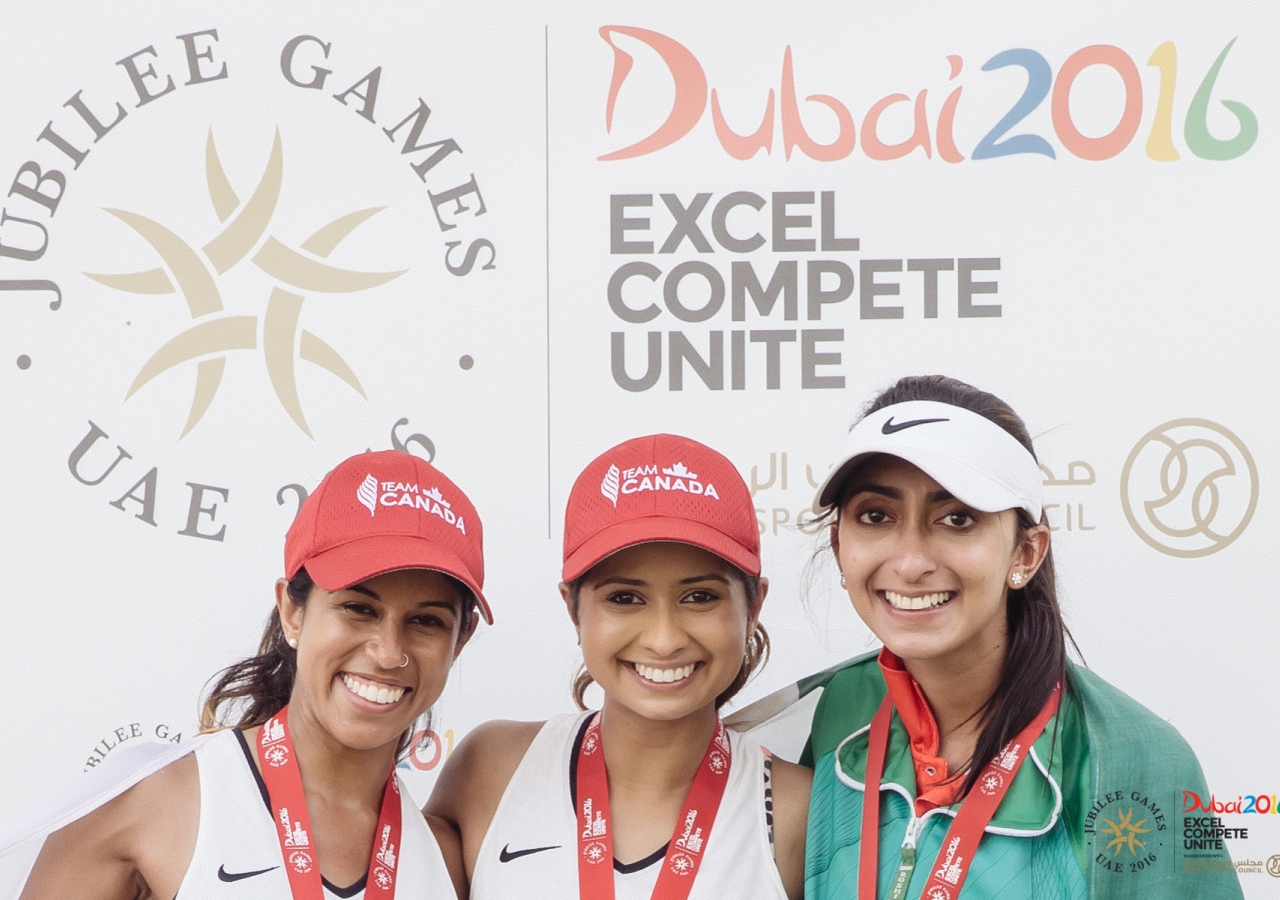Whether it’s crossing the finish line first, earning the first Division 1 college scholarship awarded to a female Pakistani athlete, or finally managing to beat her older brother at air hockey, Myra Nur Lakdawala is used to being in the lead. So it was quite fitting that Lakdawala earned the first gold medal of the 2016 Jubilee Games, when she won the women’s 1500 m race on Sunday.
“It didn’t feel like an achievement for me, it felt like an achievement for my team and it felt like an achievement for my mom and dad,” said Lakdawala after the race.
“This is our Ismaili Games — it’s a big deal.”
The middle-distance runner was challenged early on in the race as two of her competitors jumped out to take an early lead. Being a natural at longer distances — she holds the Pakistani record in the 3000 m race — Lakdawala won with her stamina. She passed her Pakistani teammate at the 500 metre mark and overtook American runner Rozina Mohammad who won the silver at 700 metres.
For an athlete who’s has already achieved personal success in her career and runs track at the University of the Pacific in California, Lakdawala has found special satisfaction in being able to compete for her home country within the Ismaili community.
“Getting a scholarship and the national record are distinct moments in my life,” she says. “But winning the first gold here…it’s a different kind of victory. It’s a wholesome, unity type of victory, not like a solo victory.”
But winning isn’t everything, she notes. The runner feels the significance of the Jubilee Games to the Ismaili community.
Seeing how Ismailis are so colourful, so united and so dedicated to the Jamat invokes a strong feeling within her.
“It moves you as a person.” “It didn’t feel like an achievement for me, it felt like an achievement for my team and it felt like an achievement for my mom and dad,” said Lakdawala after the race.
For an athlete who’s has already achieved personal success in her career and runs track at the University of the Pacific in California, Lakdawala has found special satisfaction in being able to compete for her home country within the Ismaili community.
“Getting a scholarship and the national record are distinct moments in my life,” she says. “But winning the first gold here…it’s a different kind of victory. It’s a wholesome, unity type of victory, not like a solo victory.”
But winning isn’t everything, she notes. The runner feels the significance of the Jubilee Games to the Ismaili community.
Seeing how Ismailis are so colourful, so united and so dedicated to the Jamat invokes a strong feeling within her.
“It moves you as a person.”








